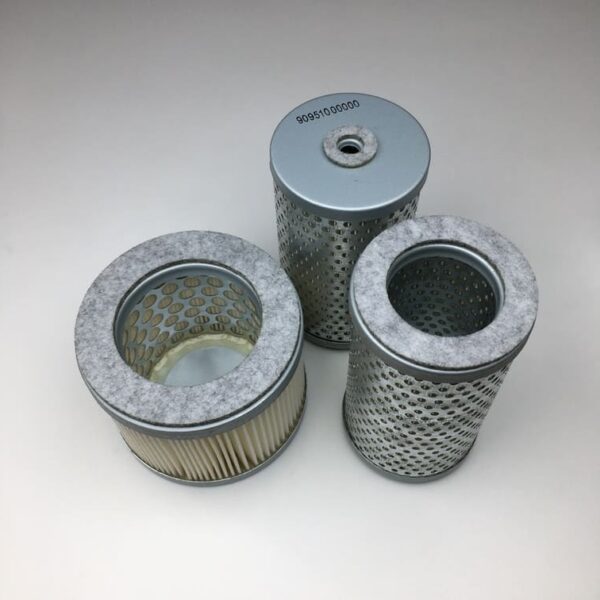Vacuum pumps are a vital part of many industrial and laboratory processes, and choosing the right oil is critical to keeping them functioning effectively. If you are in a situation where vacuum pump oil is unavailable or you are looking for an alternative, you might wonder, “Can you substitute vacuum pump oil?” This guide will cover everything you need to know about vacuum pump oil substitutes, providing a balanced mix of insight, caution, and practical solutions.
What is Vacuum Pump Oil and Why is It Important?
Vacuum pump oil is a specially formulated lubricant used to create a proper seal, minimize wear, and prevent corrosion in vacuum pumps. It plays a critical role in maintaining efficient performance, ensuring a reliable vacuum level, and keeping internal components safe from contaminants.
Properties of Good Vacuum Pump Oil
- Low Vapor Pressure: The oil must have low vapor pressure to maintain a consistent vacuum.
- High Viscosity Index: This ensures that the oil will remain stable across temperature changes.
- Thermal Stability: Good vacuum pump oil is resistant to breaking down under high operating temperatures.
- Chemical Inertness: It should not react chemically with pumped gases or the materials of the vacuum system.
Vacuum pump oil is different from common oils like motor or hydraulic oil. These special properties are why substituting vacuum pump oil isn’t as straightforward as simply grabbing something off the shelf.
When Might You Need to Substitute Vacuum Pump Oil?
Situations may arise when you cannot find the specified vacuum pump oil. Whether due to supply issues, urgent operational needs, or budget constraints, a substitute might be needed. However, it’s important to know when it’s acceptable to use a substitute and what the risks might be.
- Emergency Repairs: If your vacuum pump is critical to your operations and you’re waiting for a shipment of the proper oil, a temporary substitute might be considered.
- Availability Issues: Depending on your location, the required vacuum pump oil might be unavailable.
- Cost Concerns: Genuine vacuum pump oils can be more expensive compared to other lubricants, leading some to explore alternatives.
Suitable Alternatives for Vacuum Pump Oil
If you need to substitute vacuum pump oil, the closest and safest choices come from similar categories of specialized oils. Here are a few alternatives and considerations when choosing them:
1. Hydraulic Oil
Hydraulic oil is sometimes used as a substitute for vacuum pump oil in certain situations. It has good lubrication properties and maintains stability under pressure. However, hydraulic oil is not as optimized for low vapor pressure as vacuum pump oil, which can affect vacuum efficiency.
- Pros: Readily available, provides good lubrication.
- Cons: Higher vapor pressure can lead to reduced vacuum levels.
2. Compressor Oil
Compressor oil is another option that may serve as a substitute in some vacuum pumps. It has good thermal stability and similar viscosity properties.
- Pros: Good thermal stability, may be suitable for high-temperature applications.
- Cons: May contain additives unsuitable for some vacuum systems, leading to contamination or increased wear.
3. Mineral Oil
In less demanding applications, mineral oil can sometimes work as a substitute. It’s best used when the vacuum pump is not tasked with creating a deep vacuum, as mineral oil generally has a higher vapor pressure.
- Pros: Cheap and readily available.
- Cons: High vapor pressure leads to reduced vacuum quality, not suitable for high-performance pumps.
4. Synthetic Oil
Some synthetic oils are designed with properties similar to vacuum pump oils. These oils may provide better stability at different temperatures and tend to last longer.
- Pros: Better heat resistance, longer service life.
- Cons: More expensive and may still lack the specific formulation needed for vacuum purposes.
Risks and Drawbacks of Using Substitutes
Using a substitute for vacuum pump oil is not without its risks. Here are some of the major potential downsides you need to consider:
- Increased Wear: Oils not designed for vacuum pumps might lack proper anti-wear additives, leading to premature failure of moving parts.
- Lower Efficiency: Substitute oils may have higher vapor pressures, which can negatively affect the vacuum level achieved by the pump.
- Contamination Risks: Using oils not designed for vacuum pumps can lead to contamination, impacting not just the pump but also the vacuum system as a whole.
- Reduced Lubrication: Vacuum pumps require specific lubrication properties that substitutes may not offer, leading to overheating and mechanical failure.
How to Choose the Right Substitute for Your Application
If substituting vacuum pump oil is absolutely necessary, follow these guidelines to choose the best option for your needs:
- Consult the Manufacturer: Your first step should be to consult the manufacturer of the vacuum pump. They may recommend a specific substitute oil that won’t compromise the pump’s operation.
- Check Oil Viscosity: Use an oil with similar viscosity to the original vacuum pump oil. This ensures similar lubrication and flow characteristics.
- Consider the Application: Determine how critical the vacuum pump is to your process. If it’s being used for a high-vacuum or precision task, you must be extra careful when choosing an alternative.
- Perform Regular Monitoring: If a substitute is used, perform regular monitoring of the pump’s vacuum levels and wear signs. This will help catch any issues early.
Internal Links for More Insights
For more insights on vacuum pumps and their components, check out these articles on our website:
- Understanding Becker Original Vacuum Pump Parts
- Comprehensive Maintenance of Rotary Vane Pumps
- Becker Air Filter Maintenance and Replacement
Frequently Asked Questions (FAQs)
1. Is it safe to substitute vacuum pump oil with motor oil?
Motor oil is generally not recommended as a substitute for vacuum pump oil due to its high vapor pressure, which affects the vacuum efficiency. Additionally, motor oil often contains additives that can be harmful to the vacuum pump.
2. How often should I change vacuum pump oil?
Vacuum pump oil should be changed according to the manufacturer’s recommendation, usually every 500 to 1,000 operating hours, or if you notice degradation in performance. Substitutes should be changed more frequently as they may degrade faster.
3. Can synthetic oil be used in a vacuum pump?
Some synthetic oils can be used as substitutes for vacuum pump oil, but make sure they have a low vapor pressure and chemical compatibility with your pump. Always consult the pump manufacturer before switching to synthetic oil.
4. What happens if I use the wrong oil in my vacuum pump?
Using the wrong oil can lead to poor vacuum performance, contamination, increased wear, overheating, and even pump failure. It’s crucial to use an oil that matches the necessary specifications for viscosity, vapor pressure, and chemical stability.
5. Where can I purchase replacement vacuum pump oils and parts?
You can purchase quality vacuum pump oils and parts from reliable suppliers like VacuumPumpPart.com. Always choose high-quality parts to ensure the longevity and efficiency of your pump.
6. Can I mix different types of vacuum pump oil?
Mixing different types of vacuum pump oils is not recommended, as it can lead to unpredictable chemical reactions, which might degrade the oil properties or damage the pump components.

Conclusion
Using the correct oil for your vacuum pump is critical to maintain its performance, longevity, and reliability. While substitutes like hydraulic or compressor oil can be used in emergencies, they come with significant drawbacks such as increased wear and reduced vacuum efficiency. Always consult your pump’s manufacturer and consider the potential risks before using a substitute.
When in doubt, stick to the recommended vacuum pump oil to ensure your system runs smoothly. For reliable vacuum pump oils and parts, check out our collection at VacuumPumpPart.com. Remember, proper maintenance and using the right products can save you from costly repairs and downtime, keeping your system operating optimally.
